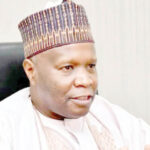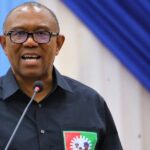This October, for the second year running, there’s no grand independence parade to remind us of our greatness as a Nation. When this non celebration happened for the first time in our history last year, we had been informed by my good friend, the Minister of Information, Labaran Maku while reassuring the Nation that the festivities were not cancelled because of terrorist threats. The country, he explained, had a huge celebration for the 50th Independence Anniversary the previous year and therefore needed a more sober approach in 2011. I am therefore supposed to assume that we are still trying to recover from the hangover of the 2010 celebrations which explains why this year’s celebrations have also been cancelled. We all recall that it was indeed during the 50th Anniversary Celebration that an explosion occurred just outside Eagle Square, the venue of the celebration. It was a strong message that what Nigeria needed at 50 was deep reflection and introspection of our failures as a Nation rather than celebrations signalling that we are still alive. With seventy percent of our people still living below the poverty line and daily life a perpetual struggle without electricity and potable water, there was something wrong with the decision that the time for celebration had arrived.
My very strong sentiments this Independence Day are that Nigeria indeed requires with the utmost urgency to acquire independence from our demons. The greatest demon tormenting our lives has been hydra-headed corruption. We have had a series of ruling classes that have transformed governance into successive expansion of mega corruption. The scale of corruption has been so massive that it has made nonsense of our efforts to practice the democratic mode of governance. Essentially, the key narrative of the Fourth Republic has been about corruption. Elections themselves are narratives about corruption. Indeed, party nominations and elections are secured through bribes offered to those who control the party machine, security agencies and the Electoral Commission. The first Speaker of the House of Representatives, Salisu Buhari, has had to vacate his office following revelations that he had forged both his declaration of age and his degree certificate, purportedly delivered by the University of Toronto. Since then, we have had a litany of corruption, which has grown, culminating in the fuel subsidy scandal that revealed mega-corruption had moved from the realm of billions of naira annually to cross the trillion naira threshold.
The combination of mega corruption and poor governance has created a situation in which the state is imploding. The legitimate use of violence by the state to impose law and order in our society has long become history. Violence has been privatised by those in power or those seeking power and it is instrumentalised for their primitive accumulation of wealth. There appears to be in existence an occult collegial power structure which works with or controls those who are the official occupants of power. Today, Nigerian political science consists not in analysing political parties and branches of government but in trying to work out the cabals that actually run the political system from behind the scenes.
A lot of normal state functions can no longer be performed in Nigeria. At the beginning of this year, President Goodluck Jonathan was warning his ministers to stop negotiating secrets deals with legislators that lead to opaque non existing programmes that are used to steal public funds. If such a basic governance instrument as the budget itself becomes an occult activity, then clearly, governance has been thrown out of the window. Even something as basic as the distribution of fuel has been consistently disrupted over the past decade due to excessive corruption in the sector. Many basic facilities such as water and electricity supply, health and education are not working efficiently, mainly because of the excessive corruption of state officials who regularly steal much of the financial allocations to their parastatals.
High level corruption transforms the character of the state. The Nigerian state has been transformed into a patrimonial and rentier one in which those who are in control of state power and strategic bureaucratic offices use their positions for private appropriation. Patrimonial and rentier states create structural constraints that erode the impersonal state based on rule of law that is necessary for democratic practice. The patrimonial state does not feel the need to promote the common good and its logic is essentially limited to the search for and access to prebendal offices and limiting the access of the people to power wielders. Nigeria is not only a patrimonial state but also a rentier one.
The major characteristic of the Rentier State is that its main relationship with the society is mediated through its expenditures on state security, which means the security of those in power and the design of development projects to enhance looting mechanisms rather than provide public services. The recent allocation of maritime security and protection of petroleum pipelines to the leaders of armed militia is the clearest public affirmation of the nature of the Nigerian state today. Precisely because a Rentier State is oriented away from the conventional role of providing public goods that have been extracted from the people through taxation; it is a provider of private favours around those who have secured political power.
In such a context, politics consists in trying to substitute those in office rather than trying to change the nature of the political game. In this context, it is not surprising that insurgency has been growing and more and more social actors are joining the fray of using the instruments of violence to achieve their objectives at the cost of thousands of lives. If the armed militants of five years ago and today the guardians of state power and resources, that the potential value of armed militancy is extremely high and what is good for the goose becomes good for the gander. In any case, there is no functional state apparatus to negotiate conflicting interests and pressures from the society so people seek their armed path to available resources.
Authoritarian ways of resolving conflicting interests and silencing pressure groups in Nigeria have failed. The growing insurgency in the country can have an even more dangerous impact because it can lead to or accelerate the process of national disintegration. In this context, it is clear that the bulk of our political class has no capacity or will to rescue the country from the abyss. I believe we have reached a stage where concerted citizen action is required to secure for us independence from our demons. When it became clear to Senegalese that former President Wade was leading the country towards political destruction and the political class was helpless in checkmating him, the people intervened. Under the leadership of Mukhtar M’bow, former Secretary General of UNESCO, an all-inclusive forum of civil society, religious leaders, academics and political party leaders organised a national dialogue for one year – 2008-2009 to establish the principles and processes that were needed to allow for the re-establishment of the constitutional order, democratic rule and the rule of law. It was that national preparation that allowed the transition to the post Wade era and the current revival of the democratic order in the country. Unlike Nigeria’s PRONACO conference which was right from the beginning crippled by a sectionalist agenda, the Senegalese dialogue was focused on promoting national interest and regeneration. Yes indeed, we Nigerians need to start organising to rid ourselves of our demons.

 Join Daily Trust WhatsApp Community For Quick Access To News and Happenings Around You.
Join Daily Trust WhatsApp Community For Quick Access To News and Happenings Around You.


